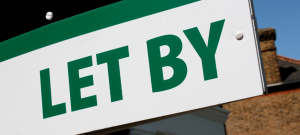The True Estate Agency Hybrid 
No matter which side of the argument you sit on, the question over whether estate agency ‘goes online’ or ‘stays in the high street’ is still a hot-button issue, often debated on panels, via the media and on Twitter, LinkedIn etc.
The two sides of the coin
The incumbency, unsurprisingly, cites that the traditional model is necessary to properly fulfil the task of moving home and insist that the fee charged is best justified as a percentage that increases with the value of the asset being sold.
Whilst the onliners vehemently believe that much of the process of listing a home, its marketing, viewings, negotiating an offer, vetting the suitability of a buyer and progressing the sale are all aspects that can be done on a ‘hands-off’ basis via a platform and predominantly by simply putting the would-be purchaser in direct contact with the seller, eBayesque.

The presupposition
It’s often written and presupposed that all online estate agents are hands-off and are all the same. And all high street estate agents are hands-on.
A sweeping, binary belief that assumes that the former is able to offer a lower fee because they do less but, in direct contrast, a high street estate agency outfit may charge more because they are knees deep in oversight and constant communication to the point of suffocation.
Do you really get what you pay for?
Indeed the old adage that ‘you get what you pay for’ is banded around as a truism as if it were not a ditty that was first uttered back in the 15th-century at around the same time that Yorkshire and Lancashire were battling over roses and Joan of Arc was wishing for a cooler place to stand.
Cultural consumerism
You no longer get what you pay for these days. You get more.
The modern internet enabled customer insists on shopping around via various retailers, discounters and voucher sites obtaining the best of what they require and at the best price. Plus, delivered promptly to their door within hours with the ability to send it back on a whim. That is the 21st-century consumer.
To accord with this new cultural consumerism, all industry sectors must play along. Shopping, culture and consumptive behaviour simply demand it.
Within estate agency, some may say that the business will stay largely untouched by such modernisms. But why would it?
After all, the same consumer that fires up Spotify every day; orders their Friday night meal via Just Eat in seconds; shops around for the best holiday prices via Trivago, Hotels.com and Expedia; bets on Arsenal mid-game via the Betfair app; and has regular UPS deliveries from BooHoo.com; is the same consumer that trawls Rightmove and Zoopla for the latest dezrez and, ultimately, sell their current home to buy one.
The Amazon effect
Amazon has transformed retail. Jeff Bezos’s ethos is to offer the best choice at the best price and with the best service. With the bar set high, others have capitulated.
And that’s how I see estate agency graduating. Not a discussion about one model versus another but simply who delivers the right outcome and at a favourable cost. The label is irrelevant to the public.

The traditional sector has a problem here. It cannot compete on value proposition where its cost to the customer is linked not to its ability to perform but instead to the cost of doing business. The overheads of multiple premises in close proximity, the staff to fill them and all at an increasing cost year on year are counter-intuitive to an Amazon approach. Service itself is explained as the reason that the seller must pay more. Whereas, in reality, linking service outcome to the presence of a high street office has no logic at all.
Great service is delivered by telephone, email and face to face without a physical bricks and mortar ‘anchor’ to facilitate it. Zappos, Just Eat, Dominos, On The Beach, British Gas, Apple, John Lewis Online… they all seem to manage that quite well.
Moreover, the traditional estate agency space does not have a demonstrable record of exceptional service despite its fee level. And if it followed that the bigger the fee, the better the oversight then Savills and Foxtons would surely be the UK’s best-rated estate agents. But they’re not.
Conversely, the online estate agency space can no longer get away with doing half the job for a third of the fee. Many participants are great at listing a property…. taking the photos, compiling a floor plan and uploading to Rightmove. But that’s all.
Most onliners then take their hands off the wheel and leave their customer to coast unaided, sending emails to notify of a viewing or an offer but that the customer themselves must tackle directly. Offer negotiation, finance vetting, chain checking and sales progression are entirely side-stepped given their bottom line cost and their intricacies albeit that from reading their marketing blurb you’d not realise that these vital parts of the estate agent’s job are, in reality, abdicated.
The trouble is, the unsuspecting home seller does not know what they do not know and will, quite understandably run headlong into the candy-floss of ‘we’re with you every step of the way’ when really what that transpires to is ‘we’re here, but you won’t be able to get hold of us once we have your money’.
You cannot kid the consumer forever. Eventually, the truth prevails and the faux messaging unravels.
A leaf from Bezos
To take a leaf out of Bezos’s book, the property industry, in order to win, must provide more, for less. Not a bit less for a lot less but more service, a better price achieved, a faster sale and more customer empowerment and transparency. An altogether better experience at a lower fee point.
That is what my team and I are focussed upon as the true hybrid estate agency. The Amazonification of estate agency. And no less.